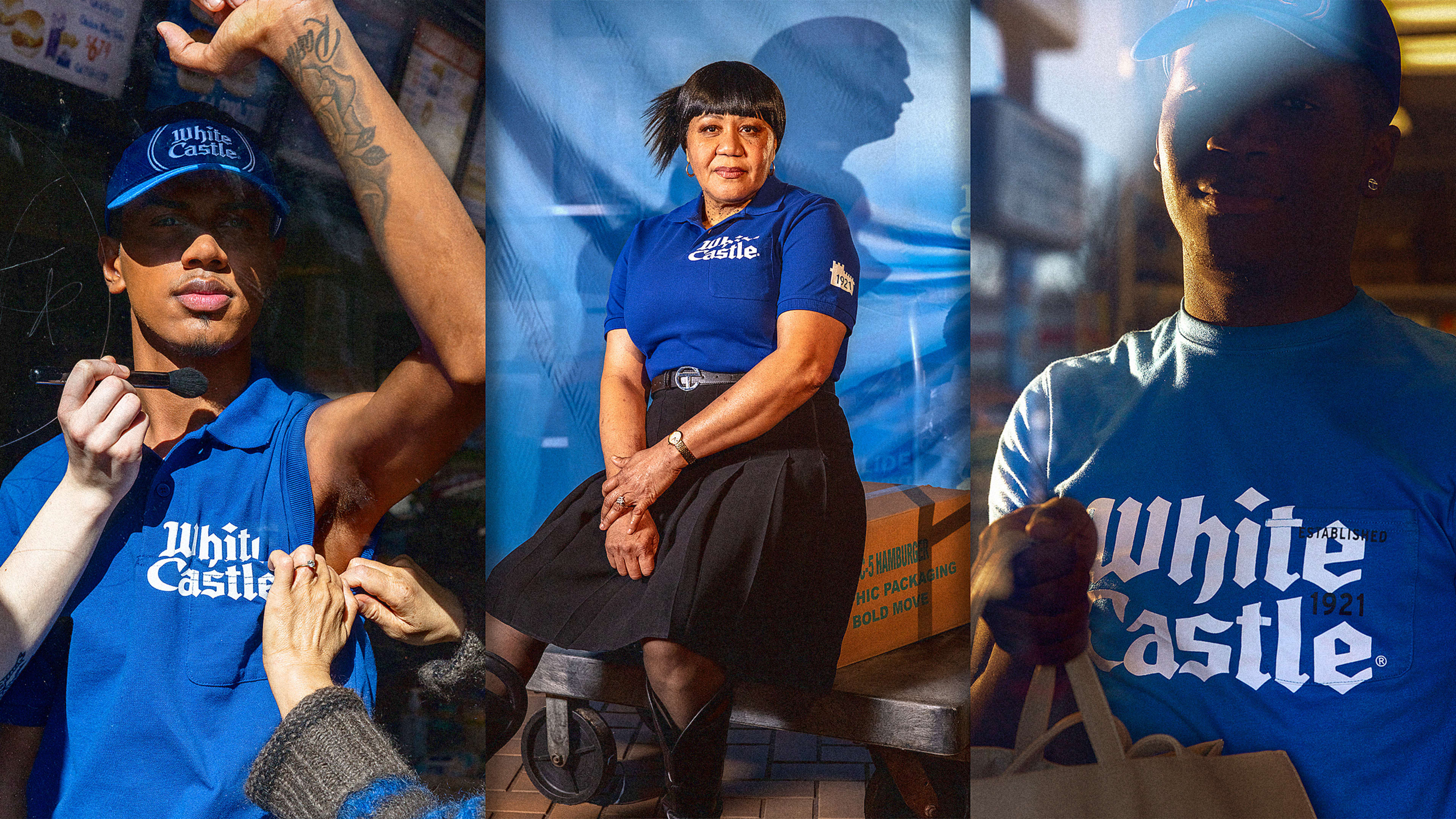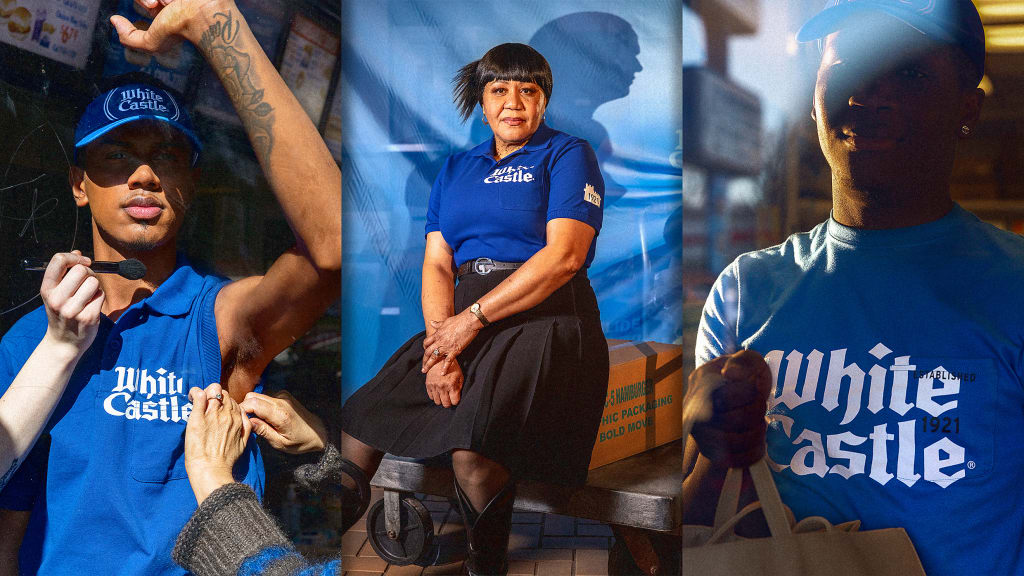When White Castle asked its employees what they wanted in their uniforms, many asked for a durag. So the fast-food brand commissioned the award-winning Liberian-American designer Telfar Clemens to create one. It’s the first time a fast-food chain has issued this hair accessory as part of its uniform.
This week, White Castle and Telfar unveiled the updated look as part of the burger joint’s 100th anniversary celebrations. Photographer Elliott Jerome Brown Jr. captured employees wearing the outfits in an intimate portrait series that offers a glimpse into the their lives during the pandemic. Like much of Telfar’s work, the collection pushes the boundaries of inclusivity in fashion, making the case that fast-food workers—whose labor is wildly undervalued in the American market—deserve great design.
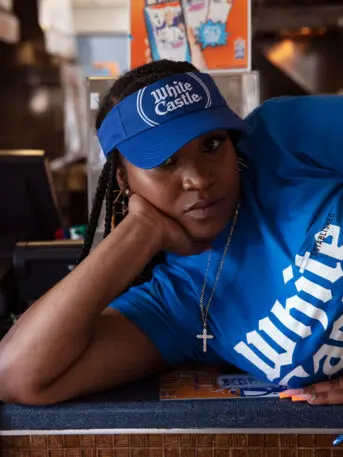
Telfar has a longstanding relationship with White Castle. In 2015, while gearing up for New York Fashion Week, his after-party sponsor pulled out and his team rushed to find an alternative. They gave White Castle a call to see if the company might step in, partly because Clemens has always loved the chain. Jamie Richardson, VP of marketing at White Castle, was on the other end of the line. “It was such an intriguing proposition,” he says. “We’re a family-owned company and didn’t have an enormous budget, but I suggested we have the after party at the White Castle on 8th Avenue in New York. He laughed, thinking I was joking.”
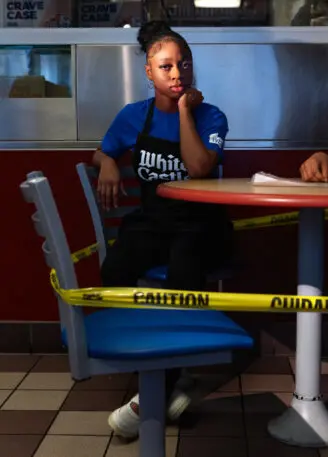
The two brands decided to continue their partnership and Richardson invited Telfar to redesign White Castle’s uniform for its 10,000 team members. In 2017, Telfar unveiled the new look which featured a polo shirt with a wide, flat collar in royal blue with yellow stitching, along with an oversized White Castle logo. In addition to giving them to White Castle workers, Telfar sold the pieces through his own brand. It was a subtle but radical move, instantly equating fast-food uniforms with designer streetwear.
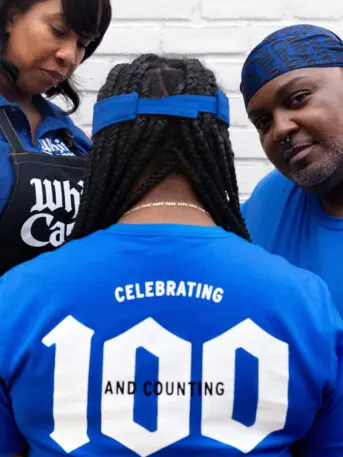
The brand frequently surveys employees about the uniforms and these latest outfits reflect some of this feedback. Some said their aprons covered up their designer T-shirts, so White Castle asked Telfar to create an apron that would complement the outfit. Others asked for a durag, a quintessentially African American hair accessory originally worn by enslaved people in the 19th century that went on to become a fashion statement in the Black Power movement in the 1960s. Telfar designed one in White Castle’s iconic royal blue. Telfar also created a limited-edition collection sold through his own brand, featuring a mashup of White Castle’s and Telfar’s logos, with proceeds going to the Robert F. Kennedy Human Rights Liberty and Justice Fund, which provides bail to imprisoned minors.
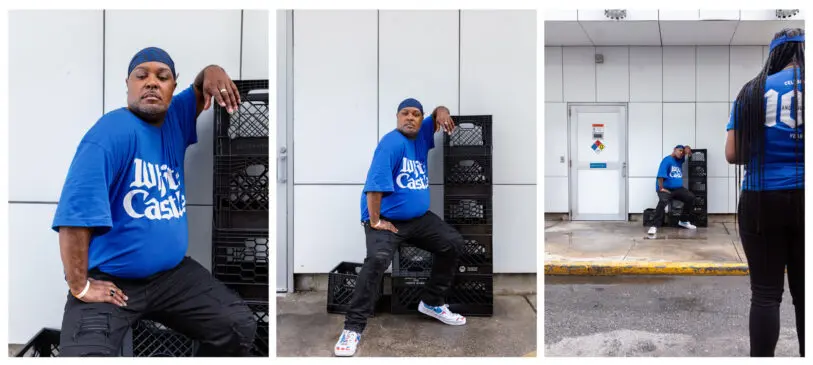
As an award-winning designer, Telfar could partner with many brands, but he has chosen to deepen his relationship with White Castle. Through his uniforms, Telfar makes the case that fast-food workers deserve to be treated with dignity and one way to do this is by giving them well-designed uniforms that they are proud to wear. Richardson, for his part, says these uniforms appear to have increased employee happiness. A quarter of White Castle’s workforce has been with the company for over a decade and since these uniforms launched, employee engagement scores have tracked upward. Says Richardson: “We wandered into this relationship, but we’ve found that it’s a rich, creative partnership.”
Recognize your brand’s excellence by applying to this year’s Brands That Matter Awards before the early-rate deadline, May 3.
